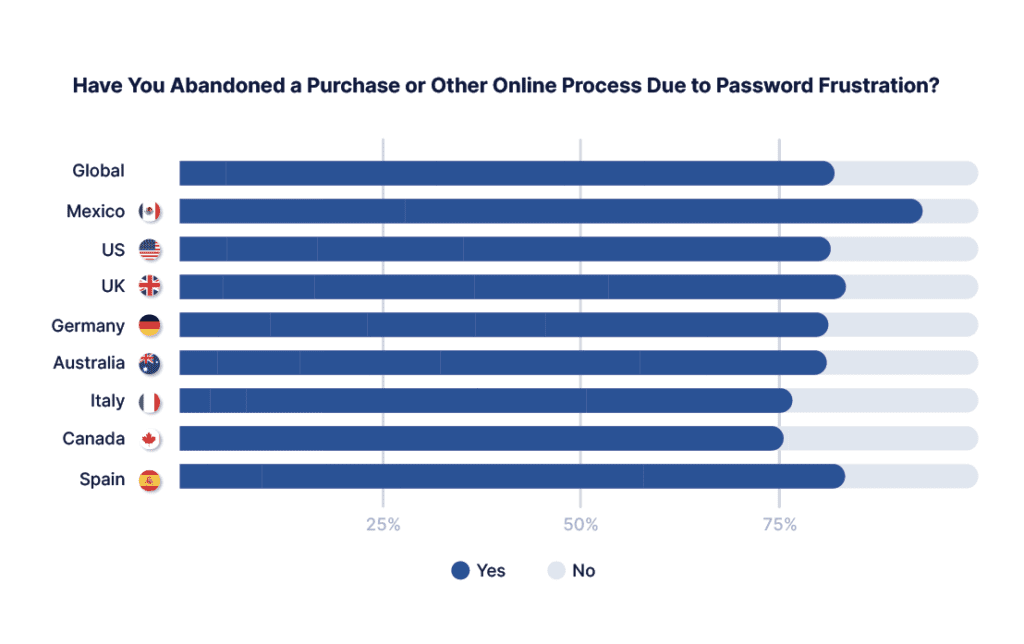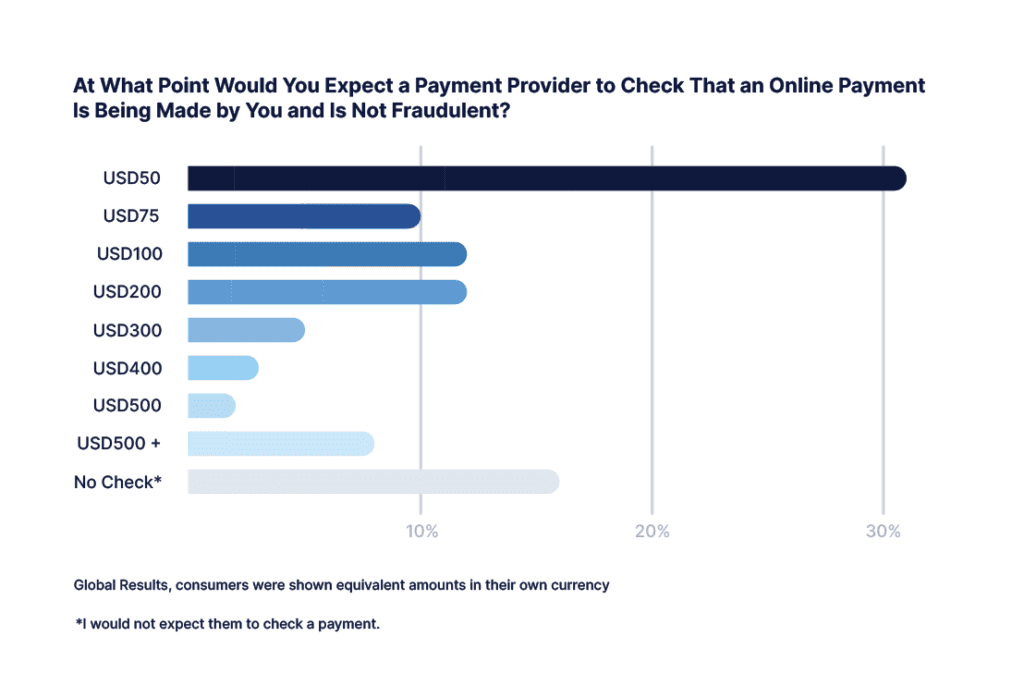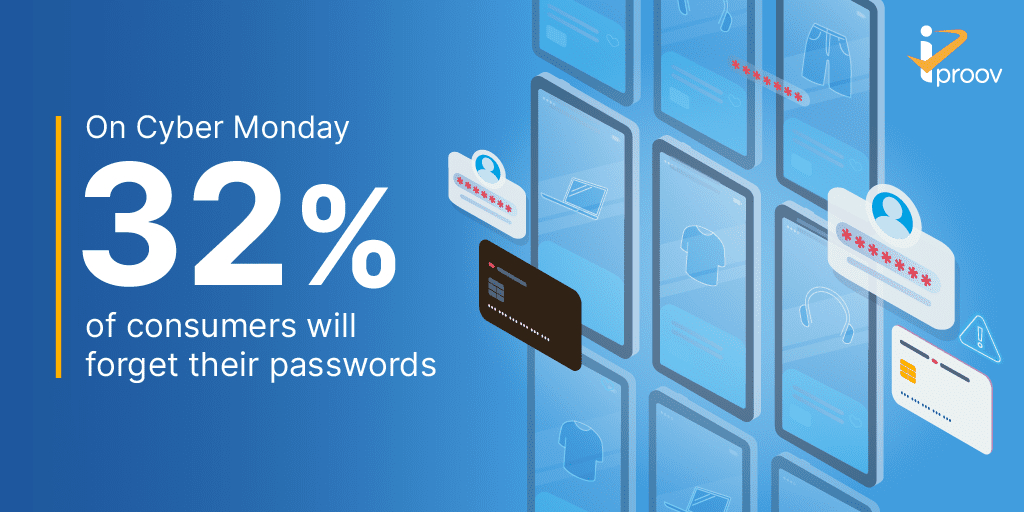November 28, 2022
It’s Cyber Monday, which means online shopping deals for consumers and an important revenue-generating opportunity for retailers and other organizations. 2022 is already off to a record start, with Black Friday online sales topping 9.12bn.
However, two hurdles will prevent consumers and retailers from enjoying Cyber Monday this year:
iProov surveyed 16,000 consumers across the globe earlier this year and found 32% of consumers will have forgotten an online password in the last 24 hours.
The frustration of having to guess a password, see it fail, then request a password reminder, then change the password, then log in, will be too much for some people, and they will abandon the purchase.
In fact, our data shows that 82% of consumers have abandoned a transaction at some point due to password frustration:
- 15% of consumers abandon a transaction at least once a week
- 32% abandon purchases at least once a month
 Increased Cybercrime = Financial Losses and the Pain of Identity Theft
Increased Cybercrime = Financial Losses and the Pain of Identity Theft
Cyber Monday is also attractive to cybercriminals, who will try to take advantage of deal-hunting consumers to steal money and credentials.
It’s more important than ever that payment providers and banks are protecting their customers. iProov data shows that consumers expect online payments to be verified. We found that 71% of consumers expect a payment provider to check that an online payment is genuine if the purchase costs up to $300. According to TransUnion, 15% of consumers say that not having enough security on a site is their top reason for abandoning their cart! How Can Face Biometrics and Liveness Prevent Shopping Cart Abandonment and Simplify Payment Verification?
How Can Face Biometrics and Liveness Prevent Shopping Cart Abandonment and Simplify Payment Verification?
- Face authentication is faster and more convenient than passwords: Everyone has a face, and presenting your face to a device is far quicker than remembering and typing in a password.
- Face authentication delivers higher completion rates: A hassle-free user experience means lower user drop-off rates. iProov success rates are typically > 98%.
- Face authentication is more inclusive: Passwords put people off because they require too much thought. iProov technology is more inclusive than other liveness vendors, as it is passive, which means all the user has to do is look at the device to authenticate. No moving the head or reading out words. It also works on any device with a user-facing camera, such as smartphones, computers, tablets, and even kiosks.
- Face authentication is more usable: You don’t need to remember any knowledge-based security (such as passwords), and you don’t need to carry any hardware tokens with you.
- Face authentication is reassuring. Everyone knows that passwords can be stolen and are not secure. iProov technology provides the reassurance that a secure transaction has taken place.
- Face authentication is fast, convenient – and secure: Passwords can be stolen, but nobody can steal your face. iProov’s face authentication technology provides liveness detection to ensure that only the genuine individual can authenticate a transaction.
- Face authentication is reassuring. Our survey data proves that consumers want reassurance when it comes to online payments. iProov technology provides flexible levels of security to deliver the appropriate reassurance based on the risk profile of the transaction.
- Face authentication delivers accuracy and higher completion rates: iProov’s success rates are typically > 98%, which means that payments can be verified quickly, securely, and accurately.
- Face authentication ensures inclusivity: iProov face verification works on any device with a user-facing camera, such as smartphones, computers, tablets, and even kiosks. This enables users to authenticate a payment quickly and easily.
Download our Digital Identity Report for more stats, or contact us for more information on how we help organizations to verify online user identity.
